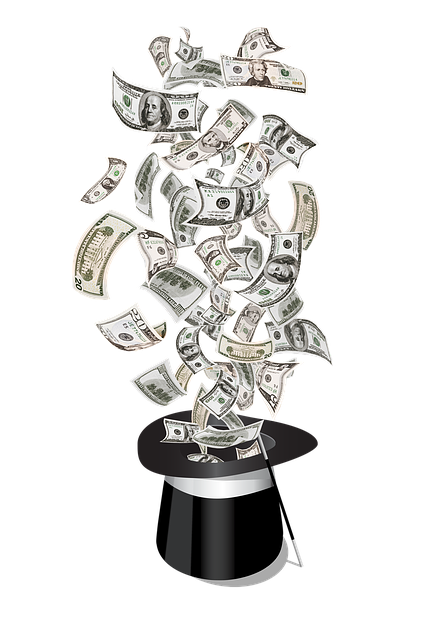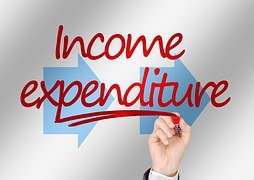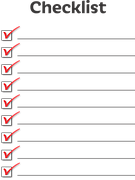US Tax Considerations- Blogging on Steemit: Business or Hobby? How the IRS Determines It

In the prior articles I have written on US Tax considerations, we learned how to value the US Dollar income received from STEEM and Steem Based Dollars (https://steemit.com/tax/@lpfaust/us-tax-considerations-when-blogging-for-magic-internet-money-part-i) and we learned how to calculate the capital gain (or loss) from exchanging STEEM and Steem Based Dollars for US Dollars (https://steemit.com/tax/@lpfaust/us-tax-considerations-when-blogging-for-magic-internet-money-part-ii). We have also discussed reporting requirements if you hold your STEEM and Steem Based Dollars in foreign crypto exchanges (https://steemit.com/tax/@lpfaust/us-tax-considerations-cryptocurrencies-held-in-foreign-exchanges). Now if you happen to have hit Steemit pay dirt or are making some consistent rewards, you may consider turning this into a full time business. However, what you think qualifies as a business and what the IRS thinks qualifies your blog as a business can be very different.
In this round we are going to take a very general look at Hobby Loss Rules.
But First, The Required Legalese…
Any accounting, business or tax advice contained in this communication, including attachments and enclosures, is not intended as a thorough, in-depth analysis of specific issues, nor a substitute for a formal opinion, nor is it sufficient to avoid tax-related penalties.
Business or is it a Hobby- why Does it Matter?

So let’s imagine that you’ve generated all this income from blogging, and have considered possibly turning this into a business. Maybe you’ve heard about all the “tax deductible expenses” and would like to begin taking those deductions on your next income tax filing. This is where the rubber meets the road and why it matters.
Having a business opens you up to a host of tax deductions for “ordinary and necessary” expenses one could not take for a hobby (such as advertising expenses). In future articles I will cover some of the deductions which could qualify as “ordinary and necessary” and dispel some deduction myths.
How does the IRS Determine Business or Hobby?

In an effort to give taxpayers and the IRS some framework to determine if the activity in question falls under a for profit business or a hobby, Section 183 of the Internal Revenue Code provides nine factors, which if answered in the affirmative, suggest it’s a for profit business
- The manner in which the taxpayer carries on the activity
- The expertise of the taxpayer and their advisers.
- The time and effort expended on the activity by the taxpayer in carrying on the activity.
- The expectation that the assets used in the activity will appreciate in value.
- The success of the taxpayer in carrying on other similar or dissimilar activities.
- The taxpayer’s history of income or loss with respect to the activity.
- The amount of occasional profits, if any, which are earned.
- The financial status of the taxpayer
- Elements of personal pleasure or recreation.
The idea behind this list is that these factors are not intended to be the exclusive tool for determination and one factor does not determine if the taxpayer is carrying on a for profit business. That being said, the more of these factors you have buttoned up, the better off you are.
As it relates to artists, photographers, musicians, writers and entertainers, when the IRS challenges the profit motive of the activity, they generally challenge under Item 6 (The taxpayer’s history of income or loss with respect to the activity), Item 8 (The financial status of the taxpayer) and Item 9 (Elements of recreation). The challenge to Item 8 is generally targeted at wealthy individuals attempting to shelter their money with recreation or hobby money.
It’s difficult to make any money, much less consistent money as a creative, and the IRS Section 183 Audit Technique Guide under the pre-audit section specifically lists as possible Section 183 activities Entertainers, Artists and Writers which does not help bolster the argument of for profit business.
Fortunately, the Tax Court seems to agree, and decisions in a number of Tax Court cases show the court gives less weight to factors 6, 7, and 8 and more eight to factors 1, 2, and 3. The Congress has recently recognized the unique challenges involved in artistic endeavors and added section 263A(h) to the Internal Revenue Code which allowed “freelance authors, photographers, and artists” to deduct currently business expenses incurred in working on manuscripts that may or may not be published. Prior to this, expenses had to be deferred (inventoried) and were only expensed at the time the manuscript was sold or started generating royalties (in many cases, years after they were incurred).
What can I Do to Strengthen My Argument I have a For Profit Business?

Given that the Tax Court decisions have placed a greater weight on the first three factors, the focus of the taxpayer should be weighted towards these three determinants. It’s the overlooked, simple stuff you need to focus on: create a business plan, keep the business funds in a separate bank account, don’t comingle personal and business funds, keep consistent books and records (IRS Recordkeeping Requirements https://www.irs.gov/businesses/small-businesses-self-employed/recordkeeping), track the time and effort put into your business, speak to people who are smarter than you and have more experience monetizing blogs and content and work hard.
Wrapping it Up
In general, treat the business as a business with the seriousness it deserves. The goal is to demonstrate you have a for profit business to legitimize your deductions.
Have a tax question? Please feel free leave a question in the comment section below and I may feature it in a future blog post.
Very detailed article. Thanks for sharing with us @lpfaust
@vishal1, thanks for taking the time to read this post, I appreciate it.
Believe it or not, this is a very general overview. It can get much more complex. When I write these articles, the hardest part of this is taking something complex, technical, dry and uninteresting, and write about it broad, non-technical terms , be somewhat interesting and still retain some value. It's a tough line to straddle.